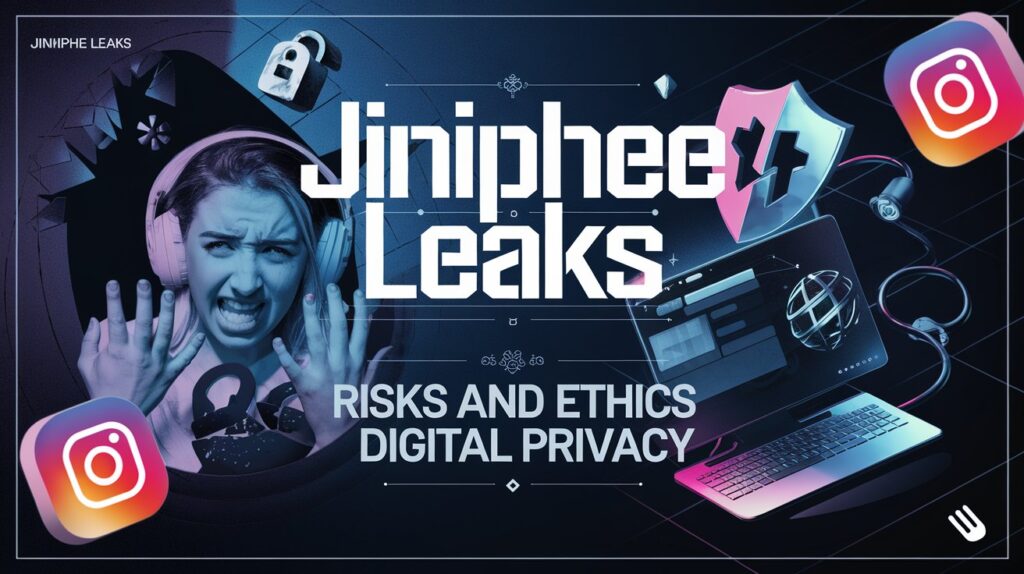In an age where digital platforms like OnlyFans empower creators to share exclusive content with subscribers, protecting personal and intellectual property has never been more critical. However, the recent jiniphee leaks of OnlyFans content highlight ongoing privacy challenges that many creators face. This incident has sparked conversations around platform security, creator rights, and the ethical responsibilities of subscribers. Let’s delve into the security vulnerabilities on content-sharing platforms and examine how creators, platforms, and subscribers can help build a safer digital space.
Understanding OnlyFans and Its Security Challenges
OnlyFans has revolutionized how content creators can monetize their personal content. Here, creators can earn by offering exclusive content to paying subscribers. This model supports countless individuals financially, but it also opens up significant risks, including:
- Unauthorized distribution: Content leaks often result from unauthorized sharing by subscribers or cybercriminals.
- Platform vulnerabilities: Despite various security measures, OnlyFans and similar platforms remain susceptible to breaches.
Key Statistics
- 75% of content creators on platforms like OnlyFans express concerns about content leaks.
- 10% of OnlyFans creators have reportedly faced unauthorized content distribution in the last year alone.
Case Study: OnlyFans Content Leaks
Creators like Jiniphee, who share intimate content, often face privacy risks. A study of digital platforms shows that inadequate encryption and user breaches are among the top reasons for leaks. This underlines the need for stronger security protocols to protect creators’ personal content.
The Jiniphee Leaks Incident – What Really Happened?
The Jiniphee leaks took the internet by storm. As a Korean content creator, Jiniphee (also known as Jini Phee) found her explicit content circulating on Reddit, Instagram, and other social media platforms without her consent. This leak triggered outrage among her paying subscribers and posed severe consequences for her reputation and livelihood.
Timeline of Events
| Date | Event |
| August 2024 | First signs of leaked content appear on Reddit. |
| September 2024 | The leak spreads to Instagram and various niche sites. |
| October 2024 | Jiniphee addresses the leak, urging fans to report unauthorized content. |
This leak harmed Jiniphee financially, damaged her trust with subscribers, and opened her up to unwanted attention and harassment. Such breaches can discourage creators from sharing content, which could impact their income and long-term growth on the platform.
Broader Impact on Content Creators
Trust and Reputation Damage
Leaks damage the trust between creators and subscribers, making it harder for creators to maintain a loyal audience. Once private content is exposed, creators lose control over its distribution, which can severely impact their professional reputation.
Financial and Emotional Toll
Content leaks often lead to significant financial losses due to a loss of subscribers who no longer feel exclusive. The emotional toll can be equally severe, as leaks can lead to harassment and even blackmail.
Example: Following her content leak, Jiniphee faced a drop in subscribers and received numerous invasive comments, impacting her mental health and online presence.
Role of Platforms Like OnlyFans in Securing Content
Platforms like OnlyFans play a crucial role in protecting their creators’ content, as they manage the infrastructure where the content is stored and shared. Despite employing security measures such as two-factor authentication and encryption, these measures may fall short when it comes to preventing unauthorized distribution.
Current Security Protocols
- Two-factor authentication (2FA): Adds an extra layer of security to login processes.
- Encryption: Protects content files from unauthorized access.
- Regular security audits: Ensure the system remains up-to-date against new vulnerabilities.
However, OnlyFans’ response to leaks, including the jiniphee leaks, has sparked discussions on whether the platform’s security measures are sufficient to prevent unauthorized access and leaks.
Ethical Considerations and the Morality of Consuming Leaked Content
From an ethical standpoint, consuming leaked content undermines the creator’s rights and consent. Those who view or share such content are engaging in a violation of the creator’s intellectual property rights and contributing to a harmful digital culture.
Why Consuming Leaked Content Is Harmful
- Violates creator consent: Viewers of leaked content breach the trust and boundaries set by the creator.
- Undermines the platform’s privacy agreements: Leaked content consumption disrespects the intended use of platforms like OnlyFans.
“When you consume leaked content, you’re disregarding a creator’s control over their own work, and that has real consequences.” — Digital Ethics Expert
Proactive Security Measures for Creators and Subscribers
To minimize the risk of leaks, content creators and subscribers can adopt proactive measures.
For Creators
- Enable 2FA: Protects against unauthorized logins.
- Watermark content: Helps trace the original source of leaked material.
- Limit subscribers for exclusive content: Offer highly personal content to a trusted, smaller audience.
For Subscribers
- Report suspicious activity: Alert creators or platforms if leaked content appears.
- Respect content boundaries: Support creators by following ethical guidelines.
Example: Creators who watermark their content have been able to more effectively combat leaks, as watermarks help identify the source of unauthorized distribution.
Long-term Industry Implications of Content Leaks
With the rise of digital platforms, content leaks are a growing issue that requires innovative security solutions and a shift in industry practices.
Future Security Advancements
- Blockchain for content protection: Allows decentralized ownership and tracking of digital content.
- AI-driven monitoring: Uses artificial intelligence to detect unauthorized distribution patterns in real-time.
Cyber Insurance for Content Creators
Cyber insurance policies can help creators recover financially from leaks, which could include compensation for lost subscribers and legal costs.
“The growing need for digital security and privacy will inevitably lead to new, innovative solutions designed to protect creators in the future.” — Cybersecurity Analyst
The Road Ahead for Digital Privacy and Content Protection
New Technologies for Content Protection
Emerging technologies like blockchain and AI will likely play an essential role in protecting digital privacy. Platforms must evolve to keep up with these advancements, and creators need to stay informed about the latest security tools available.
Collaborative Security Solutions
The industry could benefit from collaboration between platforms, creators, and cybersecurity experts. By working together, these stakeholders can foster safer online communities and protect the integrity of exclusive content.
Conclusion: Key Takeaways and Lessons Learned
The jiniphee leaks highlight the urgent need for better digital security measures for content creators. Platforms like OnlyFans bear a responsibility to safeguard creators’ content, while creators themselves must be vigilant about their security. As technology advances, stronger security measures and ethical consumer behavior will be essential in creating a safe, trustworthy online environment. By fostering collaboration between platforms, creators, and subscribers, the industry can better protect the privacy and rights of content creators in the digital age.
Show your support for content creators by subscribing only through official channels, reporting suspicious activity, and promoting a respectful online environment.

Adim Smith is an experienced blogger at Match Starz, sharing in-depth insights on celebrities and athletes. With a passion for storytelling, he brings readers closer to the lives and achievements of today’s biggest stars.







